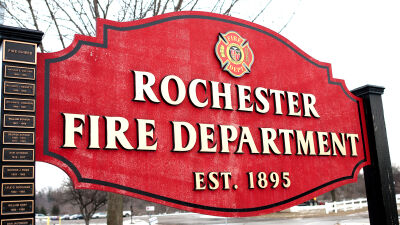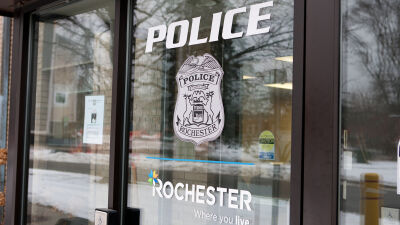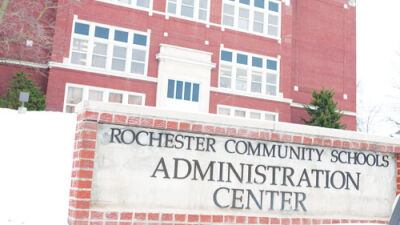ROCHESTER — It’s still up to Rochester residents to decide if they want to water their lawns during peak demand hours, a choice that will likely hike up their water bills.
Rochester has two water systems: the Great Lakes Water Authority system, which provides water — through Shelby Township — to over 1,700 city customers on the city’s east side, east of Letica Drive; and a well water system on the city’s west side, west of Letica Drive, that pumps, treats and distributes well water to over 2,000 customers.
In 2020, City Attorney Jeffrey Kragt said Rochester and Shelby Township experienced several days of high-water usage, to the point of exceeding the Great Lakes Water Authority’s limits.
In response, Shelby Township changed its sprinkler restrictions from voluntary to mandatory and built a new 3.5 million gallon, $14 million water reservoir facility to help mitigate possible future surges in peak water demand and minimize future wholesale rate increases from the GLWA.
Although the city is not a direct customer to the GLWA, about 50% of the city’s water comes from the GLWA through a 1988 agreement with Shelby Township. In June of 2021, the Rochester City Council agreed to a similar irrigation ordinance, but with voluntary sprinkler restrictions for users of water from the GLWA, in the hopes of encouraging residents, homeowner associations, businesses and GLWA users to adjust usage habits.
Under the city of Rochester’s current ordinance, residents are asked to reduce nonessential water usage, such as lawn irrigation, by operating sprinklers only between 11 p.m. and 5 a.m. yearly between May 1 and Oct. 1. Even-numbered addresses are asked to sprinkle on even-numbered calendar dates, and odd-numbered addresses are encouraged to sprinkle on odd-numbered dates.
City Councilwoman Ann Peterson suggested that the city make its irrigation ordinance mandatory.
“I just think that we need to be very conscientious of the water usage here,” she said. “It’s up to council, but whether it’s mandatory or not … I don’t want to see future people in this community having to pay more for water and go through more of this, because who knows? If we keep going at the rate we are, we might end up with another storage tank that will cost us $1 million.”
Kragt and City Manager Nik Banda said it’s been two years since the city adopted voluntary irrigation restrictions and they haven’t had any pressure outside the city to make the restriction mandatory.
“We haven’t really heard that water usage is a problem anymore,” Kragt said. “I know that the storage tank that Shelby built has been a big help, and they fill it on the off hours, so at least I haven’t heard pressures from Shelby on the reduction of water usage at this time. It’s really a discussion of, does City Council want to continue as is, or does the City Council want to tighten it up?”
Councilman Mark Albrecht said he was not in favor of legislating a mandatory ordinance now.
“I can’t imagine Shelby Township’s police department is going around writing tickets for people watering their lawns on off hours, but I do believe — as attorney Kragt and Banda said — education is key,” he said. “I think the current ordinance is sufficient, but I would like — next spring, when we get into the watering period — to have a little more education in the watering bills and some signs at some of the HOAs, especially on the east side … to remind people to conserve water when they can.”
Councilwoman Marilyn Trent agreed.
“I would like to see more education, or a page on the website, that would have tips for conserving water and saving money on your water bill for when people are asking about their water bill. I would also like to see it in the water bill and the newsletter. If it ever has to happen that this has to be mandatory, then they’ve had a warning, they have had a signal that we are concerned about water usage,” said Trent.
Mayor Pro Tem Nancy Salvia said the city is currently making “a really strong impact” on its water usage through cooperation with the HOAs.
“The common areas in the HOAs and having them water during the nonpeak hours really reduces our consumption during the peak hours,” she said. “I don’t think conservation is very effectively mandated. I think people have to choose or want to participate in conservation, and frankly, in my neighborhood, when people get a water bill that they are unhappy with, they start thinking about how they can conserve water.”
Council member Steve Sage said education is key.
“It is important that GLWA water customers limit irrigation use, including avoiding peak periods of watering, to avoid substantial rate increases — that’s what it is,” he said. “If you choose to use more water, you pay more, so eventually the system figures that out. I don’t think we need to legislate ‘you cannot water.’ I think water seeks its own level. … Once their bill gets to a certain point, they figure it out.”
To help offset future rate increases, Rochester residents and businesses are encouraged to continue watering their lawns during nonpeak periods 11 p.m.-5 a.m. to reduce capital investment and energy costs. The GLWA defines peak water demand hours as any time outside the 11 p.m.-5 a.m. window.
For more information on the city’s water services and rates, visit rochestermi.org/rates or call (248) 733-3700.
 Publication select ▼
Publication select ▼



























